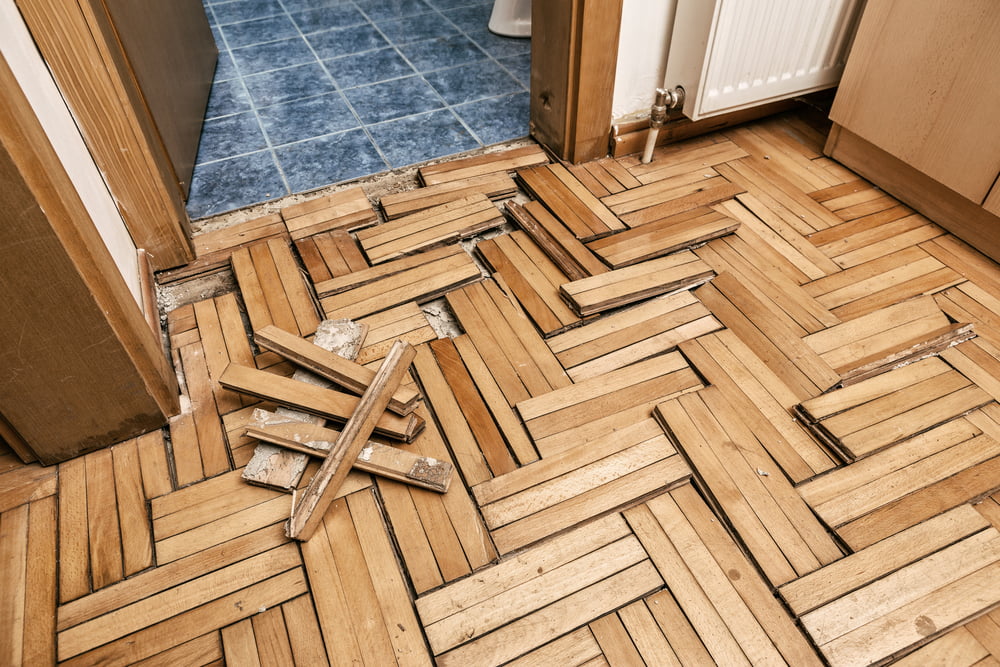Renovators traditionally shy away from timber floors in bathrooms because of the risk of rot and warping. Moisture can destroy hardwood and bamboo flooring. The best options for timber flooring in bathrooms are specially engineered water resistant wood products. Hardwood flooring can be used in bathrooms but regular maintenance, property waterproofing seals and airing (aeration resulting in completely dry floors) are essential for hardwood floors in your wet areas.
If a prospective home you’re looking at has a timber floor bathroom, you’ve scored because timber in the bathroom is bang on trend and can definitely help with property value. But before you get too excited, have the bathroom inspected.
There are right ways and wrong ways to use timber in a bathroom; you should make sure you’re not inheriting the problems of a poorly renovated bathroom. From the type of timber used to the kind of sealant, some things can make or break the attraction of a timber floor bathroom.
What type of timber in a bathroom?
Being a wet area, swollen and warped timber is a common bathroom problem if the incorrect timber is used. Timber that is suitable for wet areas is one that can keep its structure when it gets wet, absorbing and releasing moisture while staying exactly the same. Tight grain, solid timbers are the best option for timber floors in wet areas as they can withstand moisture. Examples of these timbers are cedar, teak, mahogany and locally grown bamboo. Timbers not suitable for wet areas will hold in the moisture, and expand, warp and lift as the timber dries.
What is the best wood flooring for bathrooms?
- Engineered flooring especially designed for wet areas
- Hardwood floors property treated for wet areas
- Avoid porous timbers that allow water to pass through creating trapped moisture underfloor
What to look for in a timber floor bathroom
On the first inspection, a newly renovated bathroom may show no timber damage or rot, but that doesn’t mean the potential for problems can’t be identified. During a detailed inspection of the bathroom, an experienced building inspector can determine the type of timber used and if it is suitable for wet areas.
The timber used in wet areas should always be adequately sealed and waterproofed. Any timber bathroom floors coated with wax or polyurethane carry a higher risk of water damage than a natural oil-based finish on hardwood. Moisture can become trapped underneath wax or polyurethane, leaving the timber unable to breathe, causing warping and swelling. A natural oil-based finish allows the timber to breathe. When it comes to timber flooring in wet areas, moisture regulation is essential as is adequate bathroom ventilation to withdraw moisture from the atmosphere.
How do you waterproof bathroom wood floors?
Waterproofing hardwood or engineered wooden floors for wet areas must be done by a professional. It is not recommended to be a DIY job as even minute amounts of water getting into the flooring can cause everything from warping to mould infestations.
Can you put bamboo flooring in a bathroom?
Bamboo flooring is durable and water resistant for minor spills however they are not ideal for wet areas including bathrooms and pool areas. By placing bamboo flooring in heavy moisture, you may void any insurance claims as it is not “fit for purpose”. It’s best to stick with specially engineered flooring for bathrooms and wet areas or well-sealed hardwood floors.
Don’t let a timber floor bathroom put you off buying a house just yet because if it’s done right, it could just pay off in the long run.

